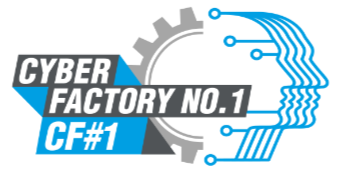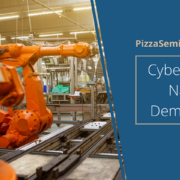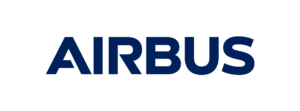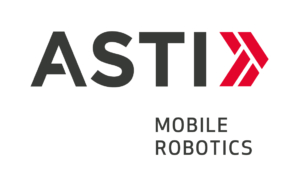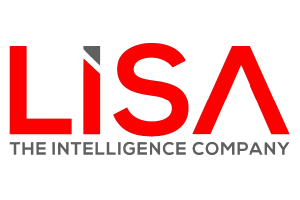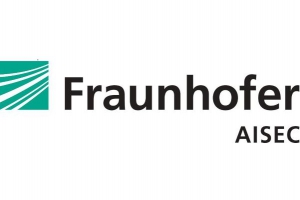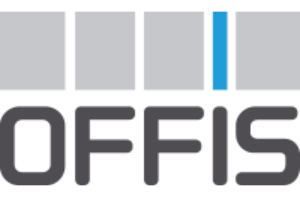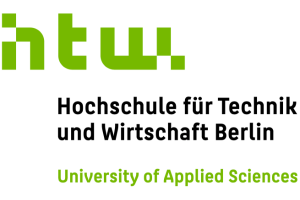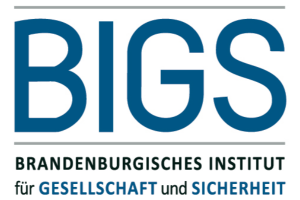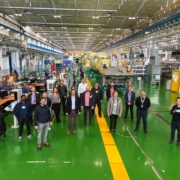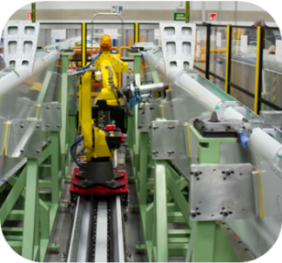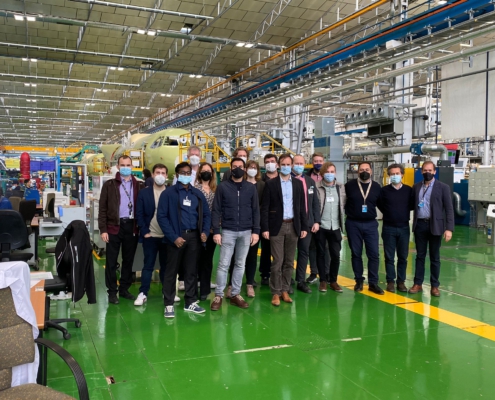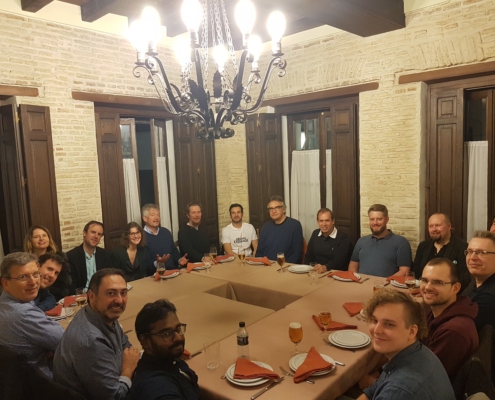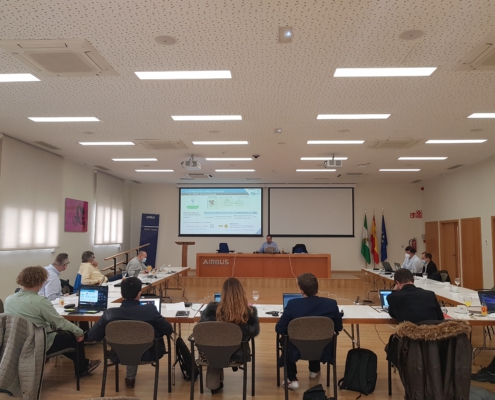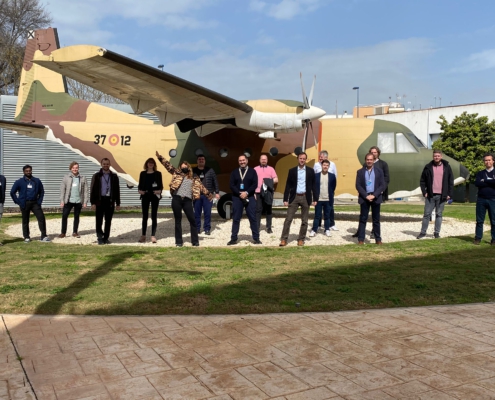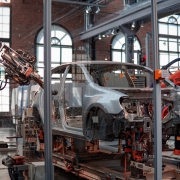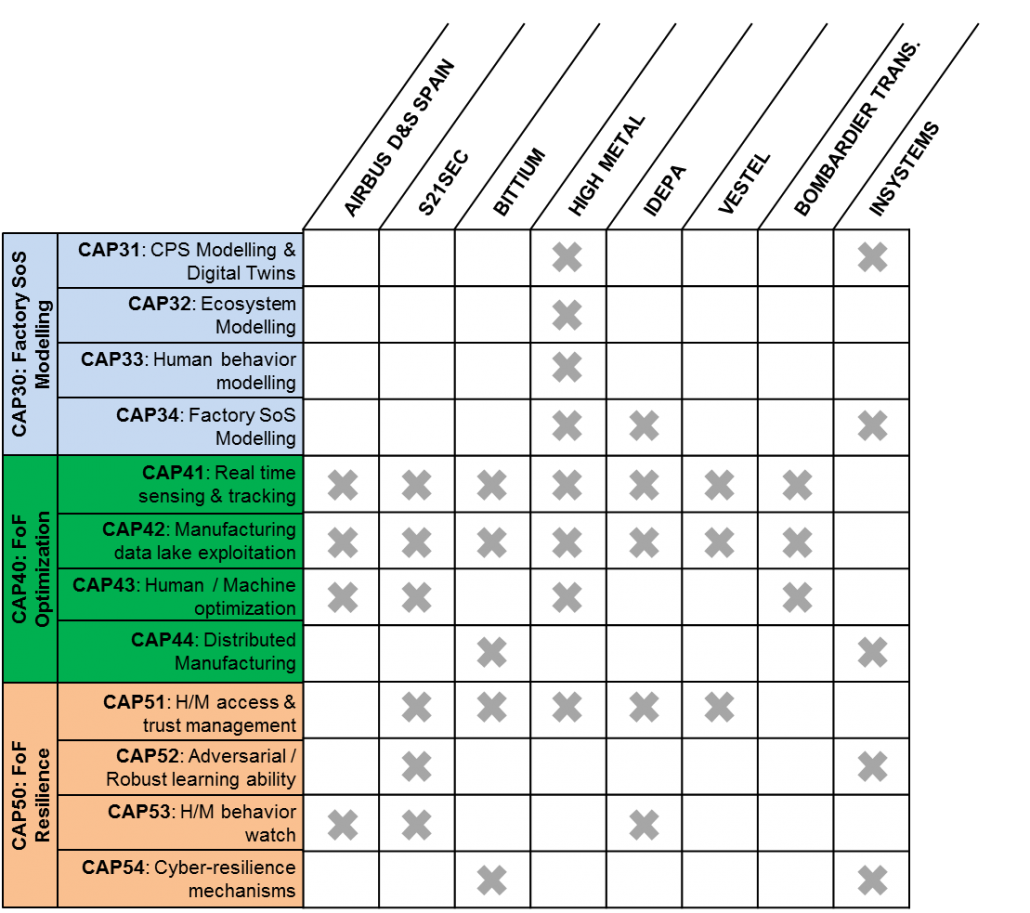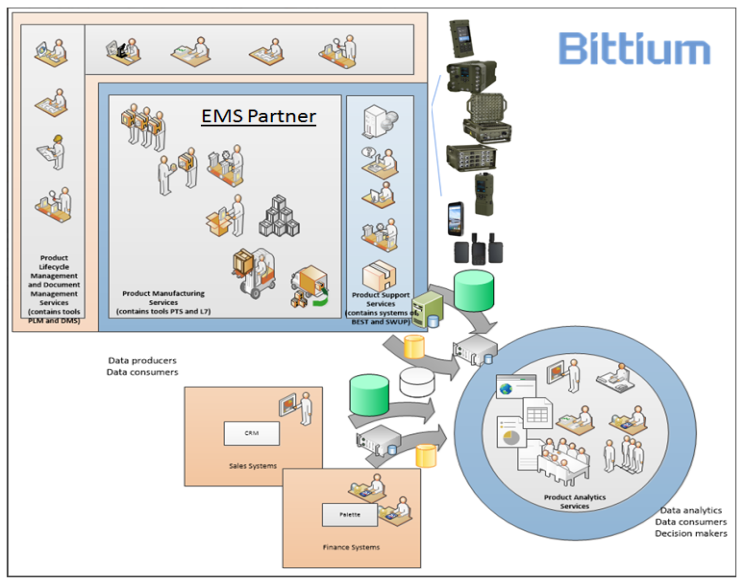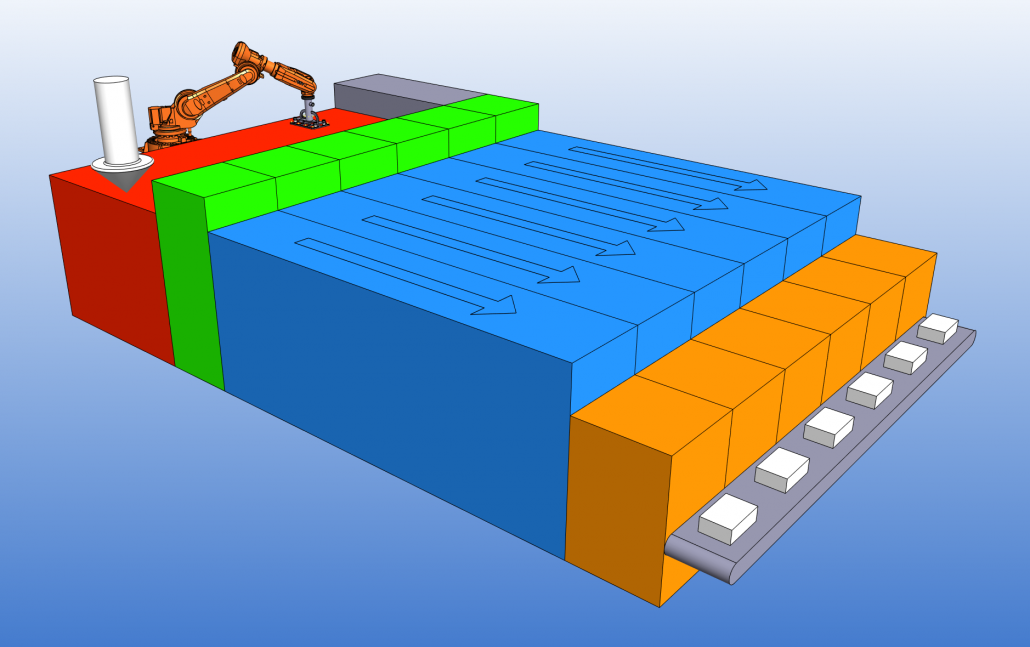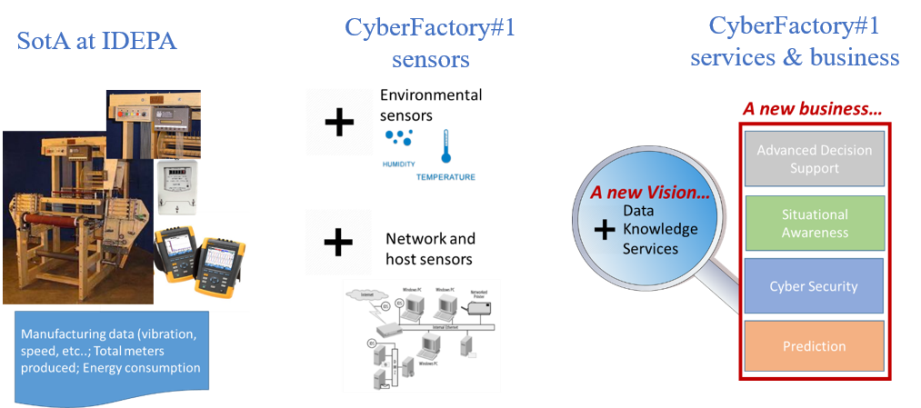PizzaSeminar: Nationale Demonstration des deutschen Anwendungsfalls
Einladung zum PizzaSeminar:
CyberFactory#1 Nationale Demonstration
am 26. April 2022 um 12 Uhr c.t.
als hybrides Event in Berlin Mitte oder über Zoom.
Die Fabrik der Zukunft soll automatisiert, vernetzt und trotzdem sicher sein. Um diese Anforderungen zu erfüllen, müssen jedoch eine Reihe von technischen Lösungen erarbeitet werden. Vor allem der Bereich Sicherheit kommt dabei oft immer noch zu kurz. Die Erhöhung der Resilienz gegenüber physischen und IT-technischen Bedrohungen wurde deshalb im Projekt Cyberfactory#1 von Anfang an mitgedacht.
CyberFactory#1 ist ein internationales ITEA3 Projekt, an dem das BIGS mit 27 weiteren Partnern aus Deutschland, Frankreich, Spanien, Portugal, Finnland, und der Türkei daran arbeitet Schlüsselfertigkeiten für die Fabrik der Zukunft zu entwickeln. Insbesondere sollen Schlüsselfertigkeiten in den Bereichen (1) Modellierung und Simulation der Fabrik der Zukunft und ihrer Elemente; (2) Optimierung der Fabrik der Zukunft; und (3) Methoden zur Verbesserung der Widerstandsfähigkeit der Fabrik der Zukunft gegenüber physischen und IT-technischen Gefährdungen entwickelt werden. Die Nutzbarkeit der Ergebnisse wird in realistischen Anwendungsfällen nachgewiesen.
Aus Deutschland arbeiten daher Anwender (ASTI Mobile Robotics, Alstom), Lösungsanbieter (Airbus CyberSecurity, LISA) und Forschungseinrichtungen (BIGS, OFFIS, Fraunhofer AISEC, die Hochschule für Technik und Wirtschaft Berlin) zusammen an einem Anwendungsfall. Dieser befasst sich mit einer Flotte von fahrerlosen Transportfahrzeugen (AGVs), sogenannten Transportrobotern. Das Ziel des CyberFactory#1-Projekts für diesen Anwendungsfall ist es, die Ausfallsicherheit der Flotte zu erhöhen und das Verhalten der Flotte zu optimieren.
Gerne möchten wir Ihnen die Arbeiten der Partner an dem Anwendungsfall vorstellen und mit Ihnen die entwickelten Schlüsselfertigkeiten diskutieren. Bei Interesse melden Sie sich bitte per Mail an info@bigs-potsdam.org bis zum 25.04.2022 mit dem Hinweis, ob sie vor Ort in Berlin Mitte oder digital teilnehmen möchten. Die Adresse bzw. der Einwahllink wird Ihnen nach der Registrierung zugeschickt. Für die Teilnahme vor Ort wird ein tagesaktueller COVID-19-Schnelltest (2G Plus) benötigt, dafür ist die Pizza wie immer inklusive.
